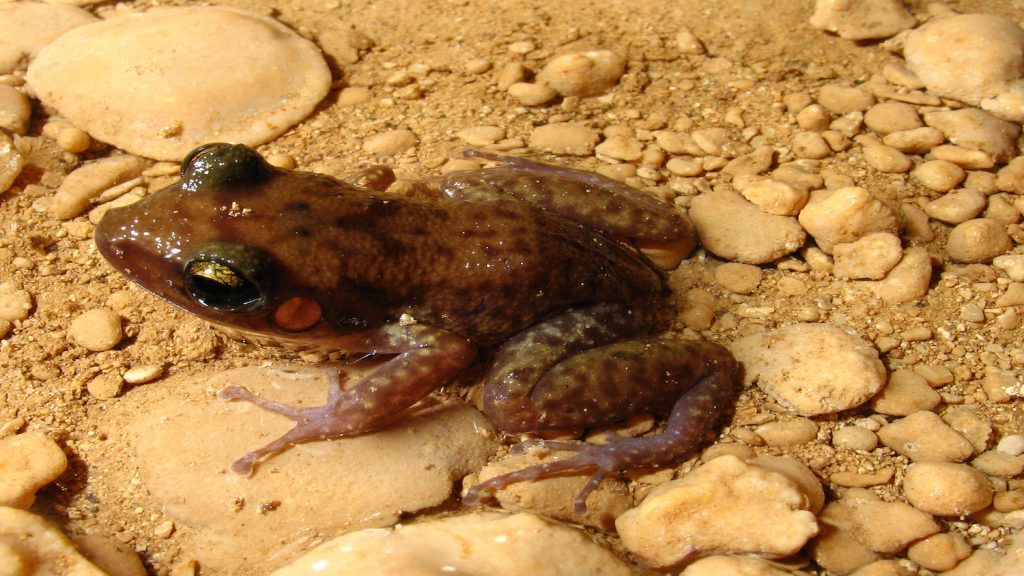Climate Change Implications for the Conservation of Amphibians in Tropical Environments

Principal Investigator: Jaime Collazo, Department of Applied Ecology and USGS Coop Unit, NC State University
Project Completion: August 2020. This project is Phase I of Strategic Habitat Conservation and Adaptive Strategies for the Conservation of Coqui Frogs in Puerto Rico.
Implements Science Theme: 4
Co-PIs: Adam Terando, USGS Southeast Climate Science Center
Krishna Pacifici, Department of Forestry and Environmental Resources, NC State University
Jared Bowden, Institute of the Environment, UNC-Chapel Hill
Overview
The U.S. Fish and Wildlife Service and the Puerto Rico Department of Natural and Environmental Resources want to develop a plan of actions to protect 12 species of coqui frogs (Eleutherodactylus spp.) that are currently considered at risk of being considered threatened or endangered, requiring additional protections under the Endangered Species Act. Actions center on two possible adaptation strategies: a) translocations to suitable, unoccupied habitat, and b) identifying climate-resilient habitats to ensure the persistence of species. Knowledge required to implement these strategies includes understanding how microhabitat and microclimatic factors – the local environmental conditions around individual frogs influence their occupancy (distribution), abundance, and reproduction; these were estimated by focusing on four representative species (E. wightmanae, E. brittoni, E. antillensis, and E. coqui). The abundance of all species but E. antillensis was positively and strongly influenced by moisture levels. As expected, E. antillensis exhibited an opposite relationship. Similarly, the reproductive activity of E. coqui was influenced by higher relative humidity and the presence of a chorus of other individuals. We found that our four focal species were not affected (e.g., abundance, reproduction) by the passing of hurricane Maria in September 2017, possibly because fallen debris creates conditions of increased food and shelter. Our findings help to assess habitat suitability, potential climate refuges, and inform timing for managed translocations.
This project incorporated results from an earlier SE CASC project, Modeling Future Temperature and Precipitation for Puerto Rico and the U.S. Caribbean, that laid the foundation for more reliable climate change information for this region by producing dynamically downscaled climate projections.
More Information
- View a USGS presentation by Dr. Jaime Collazo and Dr. Adam Terando about information learned from this project.
- View a presentation by Adam Terando describing elements of the project:
